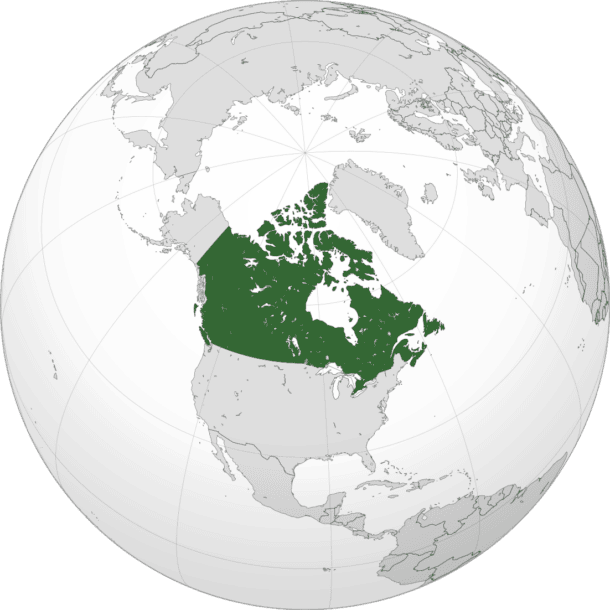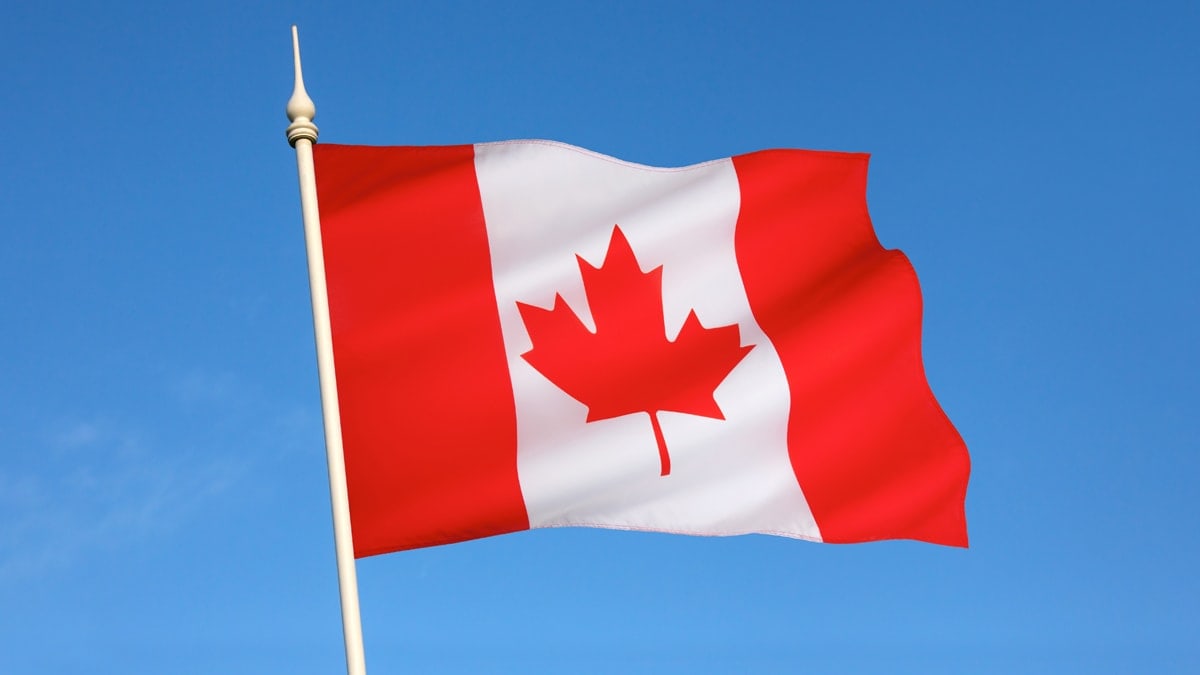Estimated reading time: 9 minutes
Canada has long been considered an attractive place to live, with a thriving economy, stable politics, low crime rates and low population density outside the major cities. This vast country varies considerably from modern metropolitan areas to the wild wilderness of the Yukon, and living standards throughout are considered some of the highest in the world.
The employment market is buoyant, and professionals can relocate to take up career opportunities, with generous statutory leave and national healthcare services for all dependent family members, alongside a well-regarded educational system.
Foreign nationals keen to live in Canada can apply for various visas and work permits, with the Start-Up Visa Program one of the most popular routes to permanent residency, offering residence to international investors, entrepreneurs, and owners of existing businesses.
Table of contents
About Canada
Currency
Canadian Dollar (CAD)
GDP
Canada’s Gross Domestic Product (GDP) is $1.988 trillion (USD – £1.55 trillion), and the country is among the wealthiest in the world with an above-average proportion of high-net-worth residents. Canada’s main industries include banking, petroleum and gasoline, oil drilling, automobiles and insurance.
Capital
Canada’s capital city is Ottawa, located in southern Ontario and close to the border with the USA. The city is the second largest in the province and has a rich history, with no less than 29 museums, including the National Gallery.
Towns and cities
The biggest cities in Canada by population size are Toronto, Montreal, Vancouver, Calgary, Edmonton, Ottawa, Winnipeg and Quebec City.
Population
38.25 million
British expats
Over 200,000 UK nationals live permanently in Canada, with a larger expat population including international students, foreign workers and those with second homes.
Languages
The primary language in Canada is English, which applies across Ontario, Alberta and Manitoba. Other provinces have varied official languages, although English remains widely spoken.
French is the official language in Quebec, Mi’kmawi’simk is the formal language in Nova Scotia, and Indigenous languages are recognised in the Northwest Territories and Nunavut. The remaining provinces have no official language but conduct most government affairs in English.
Climate
Canada’s climate changes considerably between destinations, with northern Scandinavian weather to the north with sub-zero temperatures, heavy snowfall in the winters, and cool, short summer months.
Central Canada is more continental. Winters are freezing, while summers are far warmer. In the south, across Ontario and Quebec, the summer months are warm and humid, and only the west coast tends to avoid blanket snow cover in the winter.
Average daily temperatures range as low as -15°C (5°F) in the winter but can reach -40°C (-40°F), particularly in the Yukon, compared to average summer highs of 25°C to 30°C (77°F to 86°F) in inland and southern provinces.
Map

Canada is a large country north of the United States and the second-largest nation in the world. It shares borders with Alaska and the US and is surrounded by the Arctic, Atlantic and Pacific Oceans.
Residence By Investment Options
While there are several ways to qualify for Canadian permanent residence, the Start-Up Visa Program is one of the preferred routes, where foreign nationals must submit a business proposal accompanied by approval from a sector-related organisation or trade body. Three potential approaches exist:
- Launching a company through a Canadian business incubation scheme.
- Raising at least $75,000 (£44,211) from an angel investor.
- Attracting at least $200,000 (£117,895) through venture capital investment.
Applicants must pass an English or French language test, have a clean criminal record and provide a positive health certificate. This visa is designed for either investors, entrepreneurs or experienced business people who can propose a viable business plan to bring innovation and growth to the Canadian economy.
There are no age, wealth or qualification requirements. Still, all business proposals must be approved by an organisation specified by the Canadian government, with support from a business incubator, angel investor or venture capital investor mandatory to gain approval.
Successful applicants can apply for permanent residency once support is officially given. However, they must live in Canada for at least two of the first five years or for at least 730 days to retain their status as permanent residents.
Travel
Permanent residency status allows expats to travel freely to and from Canada. Residents who live in Canada for at least three years or 1,095 days within five years become eligible to apply for Canadian citizenship, with a passport allowing visa-free or visa-on-arrival entry to over 180 global destinations.
Timescale
Applications take between 12 and 31 months to be approved.
Visas
UK nationals do not require a visa for short trips to Canada but must have electronic travel authorisation (eTA) before they arrive, with most eTAs valid for up to six months. Longer stays and expats hoping to live, work or study in the country must have a visa or appropriate work permit.
Learn more about visas and work permits for Canada.
Tax
Expats living in Canada for at least 183 days of the year are typically treated as tax residents. However, this automatically applies to foreign nationals working for a provincial or federal government office. Residents who leave Canada but retain residential ties such as having a permanent home, business, employment or relatives in the country will often still be categorised as tax residents.
Tax residents are obliged to declare and pay taxes on their worldwide income. However, foreign nationals who relocate part-way through a year are treated as partial tax residents, with their income and tax liabilities apportioned.
Cost Of Living
On average, living costs in Canada are slightly higher than in the UK. However, much depends on where you live since the major cities are inevitably far more expensive regarding property values and accommodation.
General consumer costs are around 6.2 per cent more expensive, and rental charges are 7.6 per cent higher than in Britain. However, monthly average net salaries are also marginally higher, at $4,063 (£2,395) compared to £2,308 in the UK.
A family of four requires a budget of roughly $4,761 (£2,806), excluding accommodation to live comfortably, dropping to around $1,332 (£785) for a person.
Property
Foreign nationals living in Canada as permanent residents can purchase a property, although this will not count towards residency by investment contributions.
However, non-residents and non-citizens normally need to live in the country for at least two years before they are allowed to buy a home, according to reforms in the Prohibition on the Purchase of Residential Property by the Non-Canadians Act introduced in January 2023.
Around 30 per cent of people living in the country rent accommodation, particularly in the major cities, with property types varying from modern apartments and condos to townhouses and detached or semi-detached houses in the suburbs and more rural regions.
| One-bedroom city centre apartment | $1,640 / £967 |
| One-bedroom apartment elsewhere | $1,404 / £828 |
| Three-bedroom city centre apartment | $2,690 / £1,586 |
| Three-bedroom apartment elsewhere | $2,345 / £1,382 |
View properties in Canada listed for sale on Rightmove.
Healthcare
Expats with full residency or citizenship status are entitled to apply for a medical card called a Medicare card following their arrival – it takes around three months for a card to be issued. Once a foreign national has a card, they can use public healthcare services. However, they must ensure every family member has a Medicare card and a personal identification number.
The healthcare system in Canada is considered one of the best in the world and provides universal healthcare to taxpayers in each province. However, waiting times can be long, and many opt to take out private healthcare coverage.
Canada Residence By Investment FAQ
Here, we address common queries and provide valuable information regarding residency options, visa requirements, taxation, healthcare, and more. Whether you are considering relocating to Canada or seeking clarification on specific aspects of the residency by investment program, you’ll find helpful answers to your questions below.
Permanent residency status depends on the applicant maintaining a physical presence within Canada for a minimum number of days over the first three years. If they move away and do not return or do not accumulate a sufficient number of days within Canada, they may lose the right to renew their permit or to remain permanent residents.
The most common route for expats to apply for immediate permanent residency is through the Start-Up Visa Program, and each application is assessed on a case-by-case basis. The application will be refused if the application or business plan is not approved or does not attract the minimum required investment.
Flights to Canada vary from seven hours to just over nine hours, depending on where you fly to and from. For example, you can fly from London to Toronto in seven hours and twenty minutes, but a flight to Vancouver would take about nine and a half hours.
The currency is the Canadian Dollar (CAD).
UK nationals require an electronic travel authorisation (eTA) to make any trips to Canada, with this temporary visitor pass normally valid for up to six months. Longer stays will require a visa, and potentially a work permit, depending on the reason for the move.
The processing time for permanent residency applications under the Start-Up Visa Program can vary. On average, it takes between 12 and 31 months for an application to be approved, depending on various factors such as the complexity of the business proposal and the verification process.
Yes, you can include your family members, such as your spouse or common-law partner and dependent children, in your application for permanent residency. They will have the same rights and privileges as you as permanent residents of Canada.
If your business fails after obtaining permanent residency through the Start-Up Visa Program, it does not automatically result in losing your permanent residency status. However, you must maintain your residency obligations, such as meeting the required physical presence in Canada to retain your status.
No, there are no age restrictions for the Start-Up Visa Program. Individuals of any age can apply for permanent residency through this program if they meet the eligibility criteria, including having a viable business plan and receiving support from a designated organization.
Yes, as a permanent resident of Canada, you can become eligible to apply for Canadian citizenship after meeting the residency requirements. Generally, you must have lived in Canada for at least three out of the previous five years before applying for citizenship.
Related Information
Below is a list of related articles you may find of interest.
Resources
- Government of Canada – Official website of the Government of Canada providing information on immigration, visas, and residency: www.canada.ca
- Citizenship and Immigration Canada – The official website of Citizenship and Immigration Canada, offering comprehensive information on immigration and citizenship: www.cic.gc.ca
- Invest in Canada – Government of Canada’s investment promotion agency, providing resources for foreign investors interested in Canada: www.investcanada.ca
- Statistics Canada – The national statistical agency of Canada, offering data and insights on various aspects of the country’s economy and demographics: www.statcan.gc.ca
- Canadian Immigration and Citizenship – Official website providing information on Canadian immigration programs and services: www.canada.ca/en/immigration-refugees-citizenship
